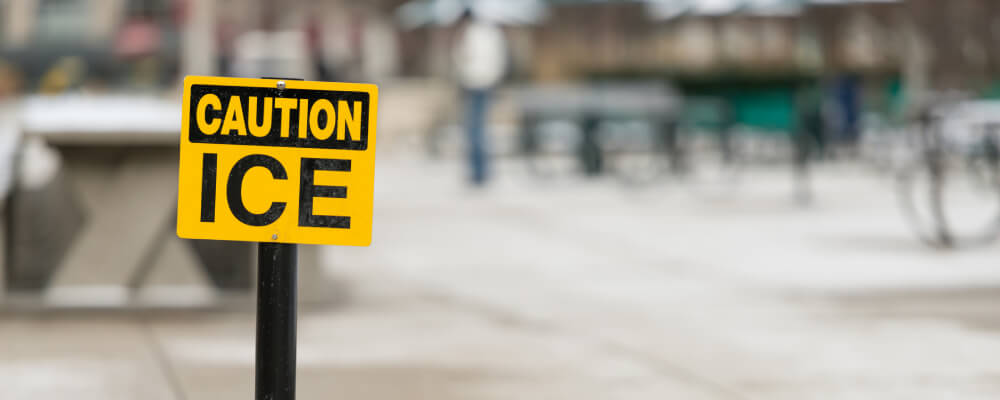In Chicago and many other places, property owners are responsible for maintaining their property in a reasonably safe manner. When they fail to do so, people can get seriously hurt. Premises liability is a legal doctrine that allows a personal injury victim to hold an owner liable for damages arising out of a defect or hazard on that property.
Suffering an injury can mean significant medical bills, lost time from work, and other damages. The Chicago premises liability attorneys of Hale & Monico know what it takes to hold negligent property owners responsible. If you or a loved one have been hurt, turn to us.
Common Types Of Premises Liability Cases in Chicago
Property owners, from residential homes to businesses, can be held liable if some hazard on their premises causes injury to someone. Grocery and retail stores, hotels, motels, restaurants, offices, and many other types of businesses are subject to these claims, along with private residences. Some of the most common types of premises liability lawsuits involve:
- Slips and falls
- Defective staircases
- Structural collapses
- Malfunctioning elevators and escalators
- Swimming pool accidents
- Construction equipment
- Falling objects
- Fires
- Negligent security
However, merely getting hurt on someone else’s property isn’t enough to maintain a premises liability case. It’s important to understand the necessary elements of these claims and what type of visitor the victim was.
Elements Of A Premises Liability Lawsuit
Because premises liability claims involve personal injuries (or wrongful deaths, in the event the victim dies), the legal elements are similar. The plaintiff must prove:
Duty. The landowner, or the business occupying that land (for example, leasing office space), must maintain the premises in a reasonably safe manner. This means eliminating any hazards on the property that the owner knows about, or should reasonably know about, and which the injury victim cannot be expected to discover on their own.
Breach. A breach is a violation of the duty and can occur in different ways. It means the owner either failed to fix the hazard promptly or did not warn others about it. Depending on the circumstances, any number of steps could be taken to eliminate the hazard (e.g., fill a large ditch on the property that someone could fall into) or provide some type of warning (e.g., rope off a dangerous area until it can be fixed). As with personal injury cases, the question of breach is fact-specific and is often the most contentious element.
Causation. The breach must cause injury to the victim. If something besides the acts or omissions of the owner is responsible, then the causation element fails.
Damages. The injuries suffered by the victim must concern some physical, mental, financial, or emotional harm. The typical damages are losses such as medical bills, lost wages due to missed work, decreased earning capacity, and pain and suffering. Damages – both their nature and the amount of compensation demanded for them – are also hotly contested between the parties in most lawsuits.
What Type Of Visitor Am I by Chicago Law?
Under the common law, a distinction was once made between an invitee (someone who had express or implied permission to be on the property) and a licensee (someone who had the privilege of being on the property with the owner’s consent). Although Illinois has abolished that distinction, there is still a difference between an invitee or licensee on the one hand and a trespasser on the other. This difference affects the duty owed by the property owner to the injury victim.
An invitee or licensee may include a customer, job applicant, delivery person, guest at an entertainment event, and many other individuals. The landowner is responsible for being reasonably aware of any conditions on the property that could hurt this person. While the owner is not obligated to guarantee you won’t get hurt, he or she must take reasonable steps under the circumstances to correct the danger.
The rules are different for trespassers. Individuals who enter property without the owner’s permission or for a criminal purpose may be considered trespassers. The property owner is not allowed to engage in willful or wanton conduct that might compromise the well-being of a trespasser, but otherwise generally owes no duty of care.
It’s important to note that the above concerns only adult trespassers. Trespassing children are not subject to the rule but are instead considered under the attractive nuisance doctrine. An owner may be accused of negligence for failing to correct a hazard he or she knew about, or reasonably should have known about, that poses a risk of injury to a child. The classic example is an unsupervised, unfenced swimming pool. The relative cost of remedying the hazard is also taken into account in these cases.
What To Do After A Premises Liability Injury
If you’ve been hurt on someone else’s property, quick action is essential to preserving your legal rights. First, document as much about the injury – and the hazardous property condition – as you can. Take pictures, record video, and save your medical bills. This documentation will be necessary when it comes time to calculate your damages. That includes keeping records about missed work and any other expenses or losses associated with your injury.
Next, don’t speak with the owner’s insurance company or the owner until you retain an attorney. The insurance company may request a statement from you or ask questions that could have you inadvertently saying something damaging to your case. Let your attorney handle communications with the insurance company and, if needed, the owner.
Contact A Chicago Premises Liability Attorney
Finally, talk to a knowledgeable premises liability attorney who is ready to fight for you. At Hale & Monico, we thoroughly investigate our clients’ injuries and get to work winning the compensation they deserve. We know how to value premises liability claims, and how to go up against insurance companies and their lawyers. Reach out to us today to get started on your case.
